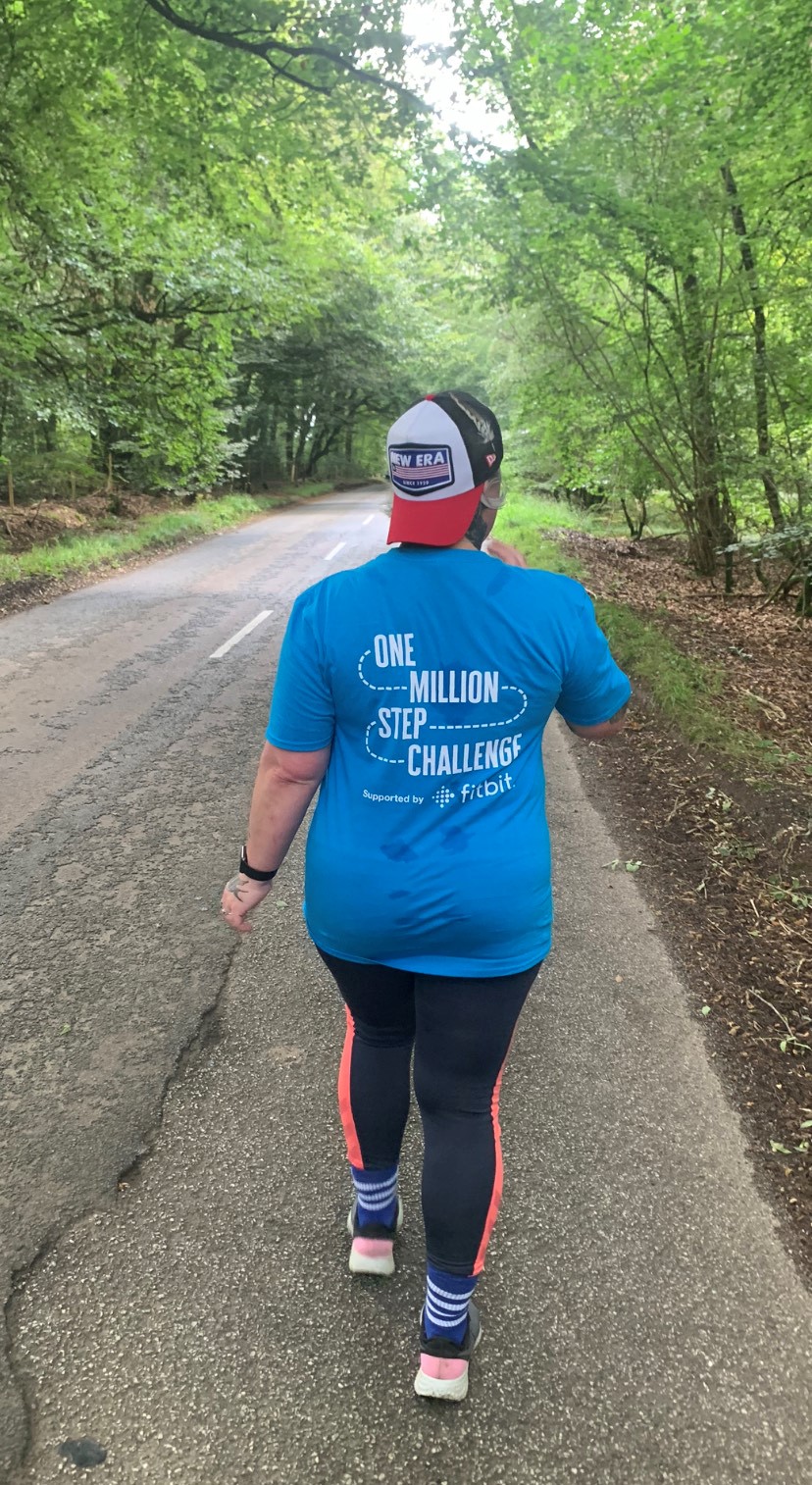You cannot fail to like Jo Sangwin. She effervesces with her passion for life and her exuberant personality is infectious. But her path in life has not always been so cheerful and the bumps in her road have been many, including a diabetes diagnosis at just twenty-four years old.

“At the time I found the whole thing catastrophic,” said the High Wycombe based civil servant. Working as an NHS nurse at the time, she would take patients down to their diabetes appointments, quietly thinking to herself that it all looked very hard and unrelenting. Little did she know that she would be diagnosed with Type 1 diabetes a few months later.
In Type 1 diabetes insufficient insulin is produced because the body’s immune system attacks the islet cells in the pancreas that makes insulin. As a result, glucose (or sugar) levels in the blood can become too high. Its onset is not linked to age or being overweight. Jo believes she contracted the illness through her first pregnancy where she was prescribed insulin and told it would probably go away after her baby was born. When she ceased taking insulin after the birth her weight fell to just six stone, “….and my body was essentially eating itself,” said Jo in disbelief. The tell-tale signs of excessive thirst also affected her – “It really is horrific; I would drink a pint of water and then do another. I was put back on insulin and that’s how it’s been ever since.”

Living with an ailment that has no known cure is one thing. Accepting it is another. “I accepted it far quicker than I thought I would, but I have had moments of denial. With a busy life you don’t always have time to check your blood sugars or remember to take your insulin before mealtimes. I did become a little kamikaze about it which was foolish. But I do believe every diabetic goes through that.”
Each day Jo walks a tightrope to ensure that she achieves the correct dose of insulin at the right time – especially before meals. Too much or too little could be fatal. A discreet sensor on her arm will alert her through her mobile phone if the level becomes too high. It may affect her life, but she refuses to let it dominate her life; “I crack on with it. I have got it and it’s not going anywhere,” said Jo philosophically.
A move to a Mediterranean diet two years ago packed with oily fish has helped Jo control the illness. Attending the gym and walking has also been beneficial.
“Diabetes affects absolutely everything.”
A routine check-up at her annual retinopathy (disease of the retina) clinic last year revealed a proliferative diabetic retinopathy in her right eye. This causes the small retinal blood vessels in the eye to become diseased. Left unchecked it can cause permanent blindness. A course of laser treatment in her right eye has slowed down any deterioration. “My consultant said if the condition had not been found I would probably have had only five years of sight left. Diabetics do suffer with blood vessel issues, including nerves. To help my eyes I take omega oils, mackerel and leafy green vegetables.”
“The team I work with are fantastic. They’re all diehard diabetes warriors!”
The leading diabetic charity, Diabetes UK, annually run the One Million Step Challenge with over 15,000 taking part this year nationwide. It was initially something that Jo had no interest in doing for fear that she would finally have to acknowledge her demons. “I have always been in that horrible frame of mind of never wanting to do something like this because it makes what I have real. To be honest I didn't want to put myself out there and say, ‘I'm diabetic.’”
However, Jo is a fighter and facing her demon by undertaking the challenge has been a cathartic experience. In accepting her illness and helping herself, she also hopes to help others. Running from 1 July 23 to 30 September 23, Jo is within touching distance of reaching her goal, having already walked 700,000 steps, with an average of 14,000 steps a day. Her office colleagues are hugely motivational, willing her on to reach the final hurdle. A wall chart helps her plot her daily progress and she admits to being obsessive about the number of steps she achieves each day.

Staying positive is crucial, both in living with diabetes and tackling the million-step challenge. Meditation, motivational podcasts and rousing music all help Jo; “I think if you’re in a pit of depression the worst thing you can do is fester. Singing is a great stress reliever. You can’t sing and deny happiness at the same time!”
“Some days you will feel low and sometimes it can be massively overwhelming, even now. It never gets easier.”
So, what advice would Jo give to someone who has been newly diagnosed with diabetes? The mother of four suggests doing research into the illness and joining social media groups to connect with others to share experiences is vital. “I didn’t do that in the beginning, and I really wish I had,” commented Jo. “There is a whole force out there – particularly younger people who are wearing all of their tech with pride. I read a lot of comments on social media from the younger people who have diabetes but they're still continuing to smoke, and I think it's silly. Don't do it! You have to look after every single blood vessel in your body because it will come back to haunt you. It is all about acceptance.”
The One Million Step challenge runs from 1 July – 30 Sept 23. You can sponsor Jo by logging onto her fundraising page at https://step.diabetes.org.uk/fundraising/joanna1986. The site will remain open for donations until 30 Oct 23.








